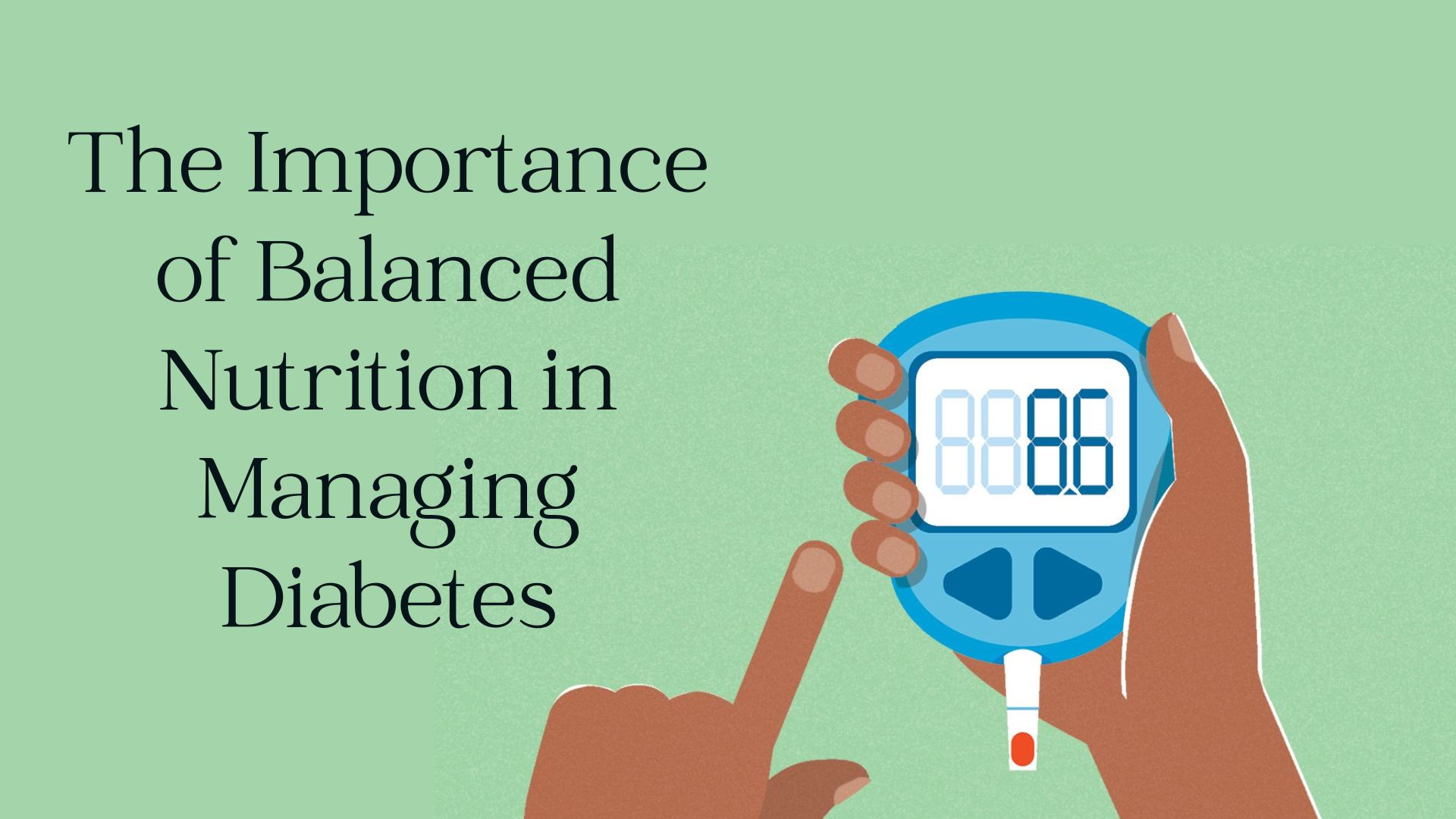Managing diabetes effectively requires a combination of lifestyle changes, including a balanced diet. Proper nutrition not only helps in controlling blood sugar levels but also supports overall health and well-being. In this blog, we’ll explore the key aspects of balanced nutrition for diabetes management, incorporating Ayurvedic principles and expert advice.
Understanding Balanced Nutrition
Balanced nutrition involves consuming a variety of foods in the right proportions to maintain health and energy levels. For individuals with diabetes, it’s crucial to focus on foods that help regulate blood sugar levels while providing essential nutrients.
Macronutrients: Carbohydrates, Proteins, and Fats
Carbohydrates
Carbohydrates have the most direct impact on blood sugar levels. Choosing complex carbohydrates, such as whole grains, vegetables, and legumes, over simple sugars can help manage blood sugar more effectively. Whole foods provide fiber, which slows the absorption of glucose and helps maintain stable blood sugar levels.
Proteins
Proteins are essential for tissue repair and immune function. Lean sources of protein, such as chicken, fish, tofu, and legumes, should be included in each meal. Adequate protein intake can also help with satiety, preventing overeating and contributing to overall metabolic health.
Fats
Healthy fats, including those found in avocados, nuts, and olive oil, are important for heart health. While fats are calorie-dense, they play a role in supporting cellular functions and should be consumed in moderation. Avoid trans fats and limit saturated fats to reduce the risk of cardiovascular complications.
Incorporating Ayurvedic Medicine for Diabetes
Ayurvedic medicine offers a holistic approach to managing diabetes through natural remedies and dietary adjustments. One popular Ayurvedic remedy for diabetes is Dr. Madhu Amrit, which is believed to help regulate blood sugar levels and support overall wellness. While Ayurvedic treatments can be beneficial, it’s essential to consult with a healthcare provider before incorporating them into your diabetes management plan.
The Role of Fiber in Diabetes Management
Fiber is a crucial component of a balanced diet for managing diabetes. It helps slow the digestion of carbohydrates, preventing rapid spikes in blood sugar levels. Foods rich in fiber, such as fruits, vegetables, whole grains, and legumes, can aid in maintaining stable glucose levels.
Soluble vs. Insoluble Fiber
Soluble Fiber
Soluble fiber, found in oats, beans, and fruits, dissolves in water to form a gel-like substance that can help lower blood cholesterol levels and improve blood sugar control. This type of fiber is particularly beneficial for individuals with diabetes.
Insoluble Fiber
Insoluble fiber, found in whole grains and vegetables, adds bulk to the diet and supports healthy digestion. While it doesn’t directly impact blood sugar levels, it contributes to overall digestive health and can help with weight management.
Importance of Portion Control
Portion control is a key aspect of managing diabetes through diet. Eating large quantities of food, even if it’s healthy, can lead to blood sugar spikes. Using smaller plates, measuring food portions, and being mindful of serving sizes can help manage calorie intake and maintain balanced blood sugar levels.
Mindful Eating Practices
Practicing mindful eating involves paying attention to hunger and fullness cues, eating slowly, and savoring each bite. This approach can prevent overeating and help with better digestion, contributing to more stable blood sugar levels.
The Impact of Regular Meals and Snacks
Regular meals and snacks throughout the day can help maintain consistent blood sugar levels. Skipping meals or going for long periods without eating can lead to fluctuations in glucose levels. Plan to eat balanced meals and healthy snacks at regular intervals to support stable energy levels and blood sugar control.
Healthy Snack Ideas
Healthy snacks, such as a handful of nuts, a piece of fruit, or yogurt with berries, can provide essential nutrients without causing significant blood sugar spikes. Choose snacks that include a balance of protein, fiber, and healthy fats for optimal blood sugar management.
Hydration and Diabetes
Staying hydrated is an important aspect of managing diabetes. Drinking adequate water helps maintain overall health, supports digestion, and aids in the elimination of excess glucose through urine. Aim to drink at least eight glasses of water a day, and avoid sugary beverages that can impact blood sugar levels.
The Benefits of Herbal Teas
Herbal teas, such as cinnamon or ginger tea, can offer additional benefits for managing diabetes. These teas may have properties that support blood sugar regulation and overall wellness. However, it’s essential to avoid adding sugar to these beverages to prevent unwanted blood sugar spikes.
The Role of Physical Activity
In addition to balanced nutrition, regular physical activity plays a crucial role in managing diabetes. Exercise helps improve insulin sensitivity, regulate blood sugar levels, and support overall cardiovascular health. Aim for at least 150 minutes of moderate-intensity exercise per week, incorporating activities such as walking, cycling, or swimming.
Combining Diet and Exercise
Combining a balanced diet with regular exercise can lead to better diabetes management and overall health improvements. Establishing a routine that includes both healthy eating and physical activity can help achieve long-term goals and support a higher quality of life.
Conclusion
Managing diabetes effectively requires a comprehensive approach that includes balanced nutrition, mindful eating, hydration, and regular physical activity. Incorporating Ayurvedic principles and consulting with healthcare professionals can further enhance your diabetes management plan. By focusing on these key aspects, individuals with diabetes can maintain stable blood sugar levels and support overall well-being.
Feel free to explore various dietary strategies and remedies like Ayurvedic medicine for diabetes and seek personalized advice from healthcare experts to tailor a plan that works best for you.
Read Also>>> Soy Milk Revolutionizing Health and Nutrition







